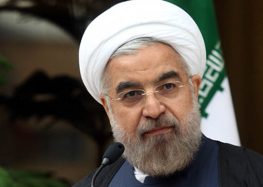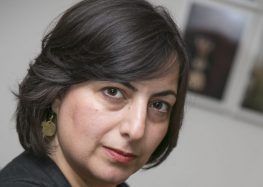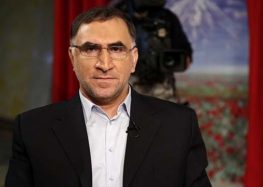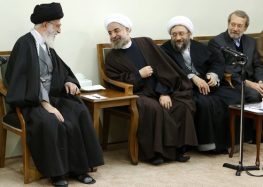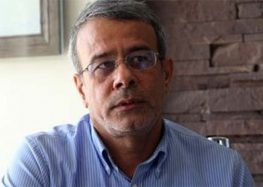Rouhani Slams Conservative Presidential Rivals’ Grim Human Rights Records
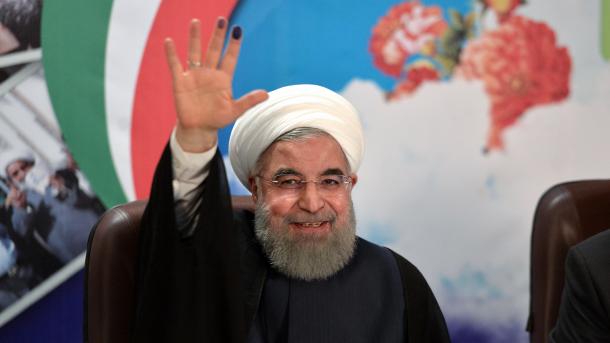
Iranian President Hassan Rouhani, currently campaigning for a second term win in the May 19, 2017 presidential election, criticized two of his opponents’ records of human rights abuses during a speech in the city of Hamadan.
“The people of Iran are saying they don’t accept those who only hung and imprisoned people for the past 38 years (since the 1979 revolution),” said Rouhani on May 8, indirectly referencing Ebrahim Raisi, who served on a committee in 1988 that implemented the executions of thousands of political prisoners.
“You don’t know them, but I do,” continued Rouhani, indirectly referencing candidate Mohammad Bagher Ghalibaf, the mayor of Tehran. “One day they met and decided to put up walls and fences along Tehran’s sidewalks to separate male and female pedestrians, just like when they segregated the staff in their offices.”
Ghalibaf, the current mayor of Tehran, oversaw the persecution of dozens of bloggers, journalists, artists and intellectuals during his command of Iran’s national police force between 2000 and 2005.
Since announcing their candidacies, Raisi and Ghalibaf have come under criticism from human rights activists and the families of victims who suffered under them.
Iranian Nobel Peace laureate Shirin Ebadi was especially appalled by Raisi’s candidacy.
“His involvement in atrocities and the massacre of prisoners because of their political or religious views in the 1980s will not be forgotten,” she told CHRI in May 2017.
In his speech, Rouhani also criticized his opponents for offering nothing other than promises of less personal freedom.
“Your logic is nothing other than to ban everything. Your logic is demagoguery and nothing more,” he said. “For the past four years, all you have done is attended meetings and demanded shutting down social media.”
“You can’t stand in the way of our youths’ progress and freedom,” he added.
At a May 8 campaign rally in Kermanshah, Rouhani also criticized the ban imposed on reformist leader and former President Mohammad Khatami (1997-2005) from making any public appearances or appearing in news media.
“Why are you banning images of our great leaders?” he said. “On what legal basis? Point to the relevant law. You claim the SNSC imposed the ban. But I’m telling you that’s a categorical lie.”
Rouhani is the chairman of the Supreme National Security Council (SNSC).
In December 2015, Judiciary Spokesman Gholamhossein Mohseni Ejei claimed the ban was being enforced according to a directive by the SNSC.
Khatami has repeatedly called for Iran to open up domestically and on the international stage and urged conservative Supreme Leader Ali Khamenei to free detained opposition leaders Mehdi Karroubi, Mir Hossein Mousavi and Zahra Rahnavard.
The three have been under extrajudicial house arrest since 2011 for publicly disputing the result of the 2009 presidential election and calling for the ensuing widespread, peaceful protests that came to be known as the Green Movement.

